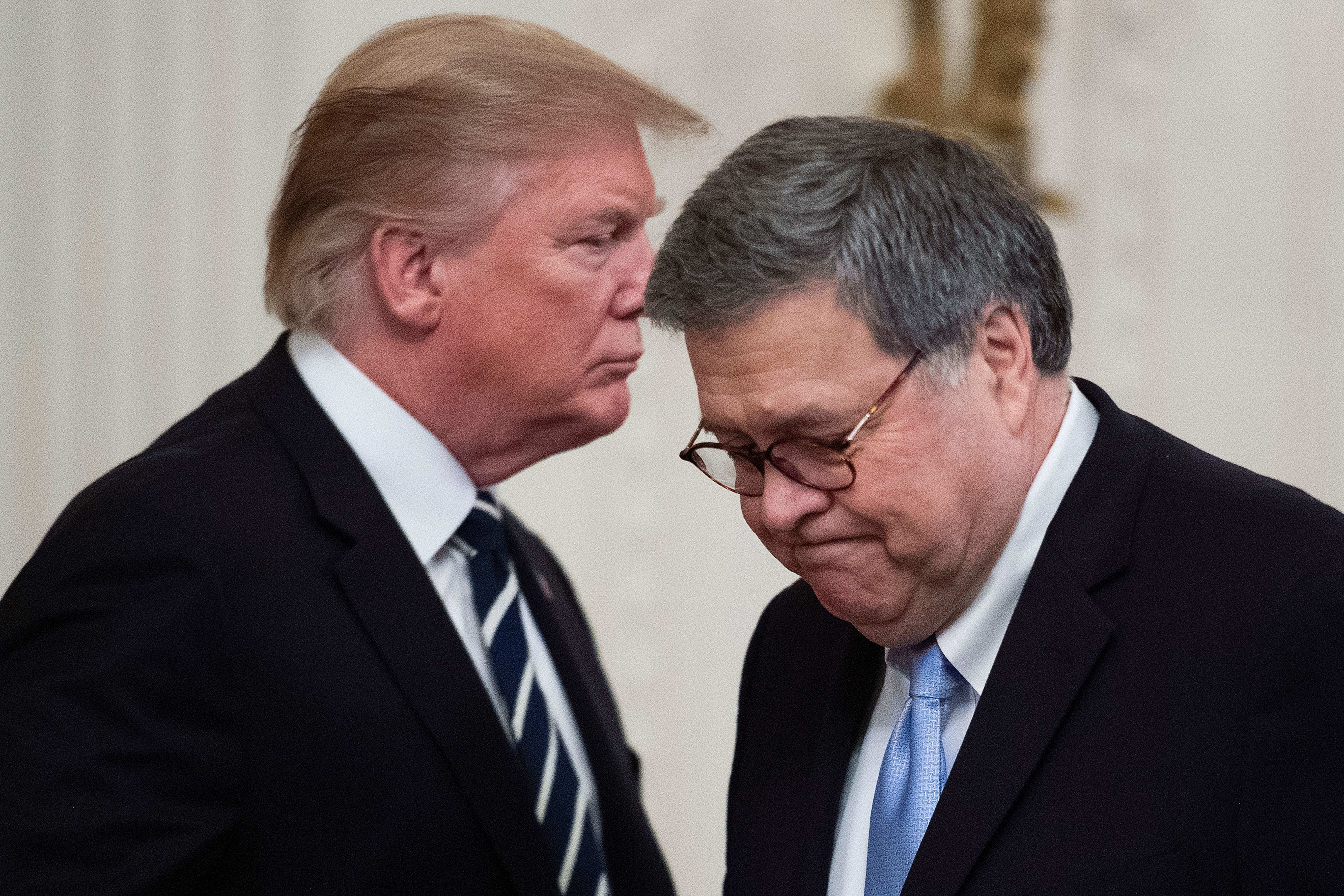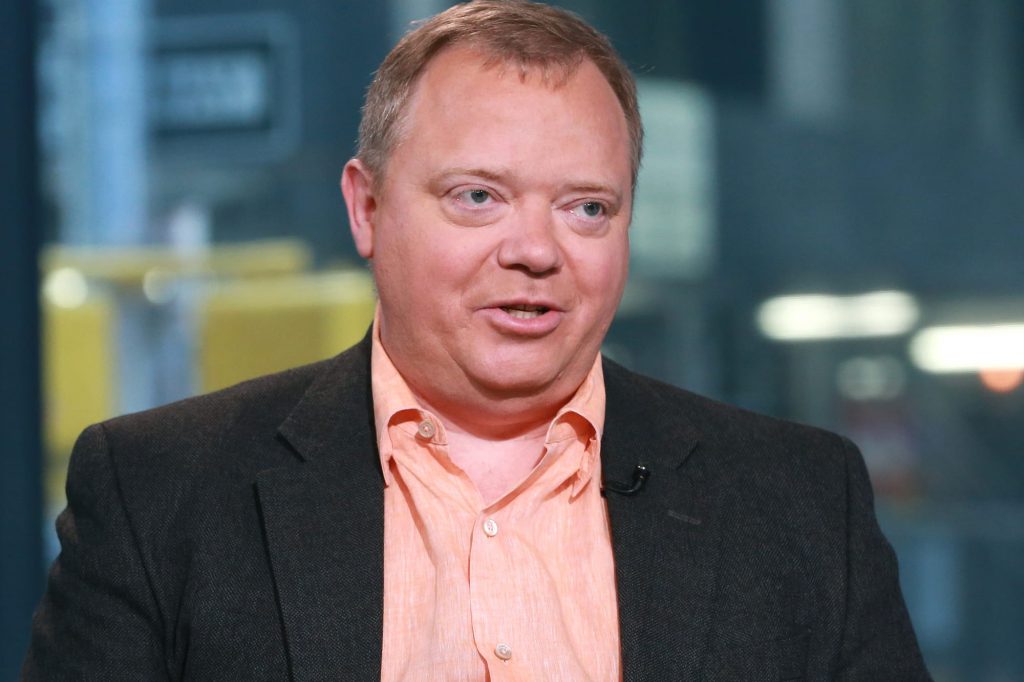
Attorney General William Barr said Thursday that President Donald Trump should stop tweeting about the Department of Justice, complaining that the president’s comments “make it impossible for me to do my job.”
Barr’s unusual critique of his boss came in an ABC News interview.
The remarks followed days of sharp criticism of Barr, Trump and the DOJ by congressional Democrats this week over the department’s decision to reverse a harsh sentencing recommendation for Trump’s friend, Republican political consultant Roger Stone.
“I think it’s time to stop the tweeting about Department of Justice criminal cases,” Barr told ABC News Chief Justice Correspondent Pierre Thomas.
“I will make those decisions based on what I think is the right thing to do, and I’m not going to be bullied or influenced by anybody … whether it’s Congress, a newspaper editorial board, or the president,” Barr said.
“I’m going to do what I think is right,” Barr said. “I cannot do my job here at the department with a constant background commentary that undercuts me.”
Trump’s tweets, “make it impossible for me to do my job and to assure the courts and the prosecutors in the department that we’re doing our work with integrity,” he said.
The White House declined CNBC’s request for comment on Barr’s remarks.
The four prosecutors who handled Stone’s trial on Monday night told a judge in a court filing that Stone should serve between seven to nine years in prison, the same span called for under federal sentencing guidelines as determined by U.S. probation officials.
Within hours of that filing, Trump blasted the sentencing recommendation as a “disgrace.”
And hours after that, the Justice Department said it would filed a new sentencing suggestion for Stone, calling for a markedly lower prison term.
All four prosecutors quit the case in apparent protest on Tuesday — and one resigned from the Justice Department altogether.
Trump praised Barr on social media after the Justice Department pushed the prosecutors in Stone’s case to weaken their proposal.
In his ABC interview, Barr, for the first time publicly, detailed his account of the decision to reduce Stone’s sentencing recommendation.
Barr said that Timothy Shea, his former counselor who recently became the U.S. Attorney for the District of Columbia, on Monday “came by to briefly chat with me and say that the team [of trial prosecutors] very much wanted to recommend the 7-9 year to the judge, but he thought that there was a way of satisfying everybody and providing more flexibility.”
“And there was a brief discussion of that. I was under the impression that what was going to happen was very much what I had suggested, which was deferring to the judge,” Barr told ABC.
“Monday night, when I first saw the news reports [about the sentencing proposal], I said “gee, the news is spinning this. This is not what we were going to do.’ “
“I was very surprised. And once I confirmed that that’s actually what we filed, I said that night to my staff that we had to get ready cause we had to do something in the morning to amend that and clarify what our position was,” the attorney general said.
“I had made a decision that I thought was fair and reasonable in this particular case. And once the tweet [by Trump condemning the sentencing proposal] occurred, the question was, well, now what do I do? Do you go forward with what you think is the right decision? Or do you pull back because of the tweet?”
“And that just sort of illustrates how disruptive these tweets can be,” Barr said.
Barr added that while “I have a problem with some of the tweets, I’m happy to say that in fact, the President has never asked me to do anything in a criminal case.
Asked if he had ever spoken with Trump about the sentencing recommendations for Stone, Barr said, “Never.”
Asked if anyone else in the White House called him to try to influence him about Stone, Barr said, “No. I have not discussed the Roger Stone case at the White House.”
Trump has repeatedly said that he did not direct the Justice Department to lower the recommended sentence for Stone. Doj spokeswoman Kerri Kupec has said the decision to amend the first sentencing memo came before Trump’s first tweets early Tuesday morning.
But Trump has also repeatedly commented on the case to reporters and on Twitter since Tuesday, and he has refused to rule out a pardon for Stone.
The interview Thursday marked a rare and dramatic break between the president and the attorney general, who has been accused of working more as an ally of Trump’s than as a top law enforcement officer.
Barr was harshly criticized over his handling of the delivery of former special counsel Robert Mueller’s report on Russian interference in the 2016 election, possible Kremlin coordination with Trump’s campaign and possible obstruction of justice by Trump himself.
More recently, he authorized the launch of a probe into the origins of the Russian inquiry by Obama-era federal law enforcement officials.
This week, House Judiciary Chairman Jerrold Nadler, D-N.Y., confirmed that Barr will testify before the Democrat-led panel at the end of March to answer questions surrounding issues such as Stone’s sentencing.
On Tuesday, Senate Minority Leader Chuck Schumer, D-N.Y., called on the DOJ’s internal watchdog to investigate whether the decision to weaken the original sentencing proposal for Stone was motivated by political pressure from the president.
In the meantime, some Democrats, such as Sen. Elizabeth Warren, D-Mass., have already called for Barr to “resign or face impeachment.”
Even some Republicans have criticized Trump’s attacks on the prosecutors in Stone’s case. “I don’t think that the president needed to jump into the middle of this in the first place,” Sen. Lisa Murkowski, R-Ala., said Wednesday. “I think it’s just bad!”
Stone, 67, was convicted in November of crimes related to lying to Congress about his contacts with the document disclosure group WikiLeaks during the 2016 presidential election, as well as to pressuring an associate, comedian Randy Credico, to corroborate his false claims.
WikiLeaks during the 2016 election published emails that had been stolen from Russian agents from John Podesta, the campaign chief for Democratic presidential nominee Hillary Clinton, and from the Democratic National Committee.
Former Trump campaign official Rick Gates testified at Stone’s trial that Trump had a phone call with Stone about WikiLeaks during the campaign.
Gates’s account contrasts with Trump’s claim in November 2018 that he did not recall speaking to Stone about WikiLeaks. Gates said that less than a minute after finishing a July 2016 call from Stone, Trump indicated that “more information would be coming” from Wikileaks.

